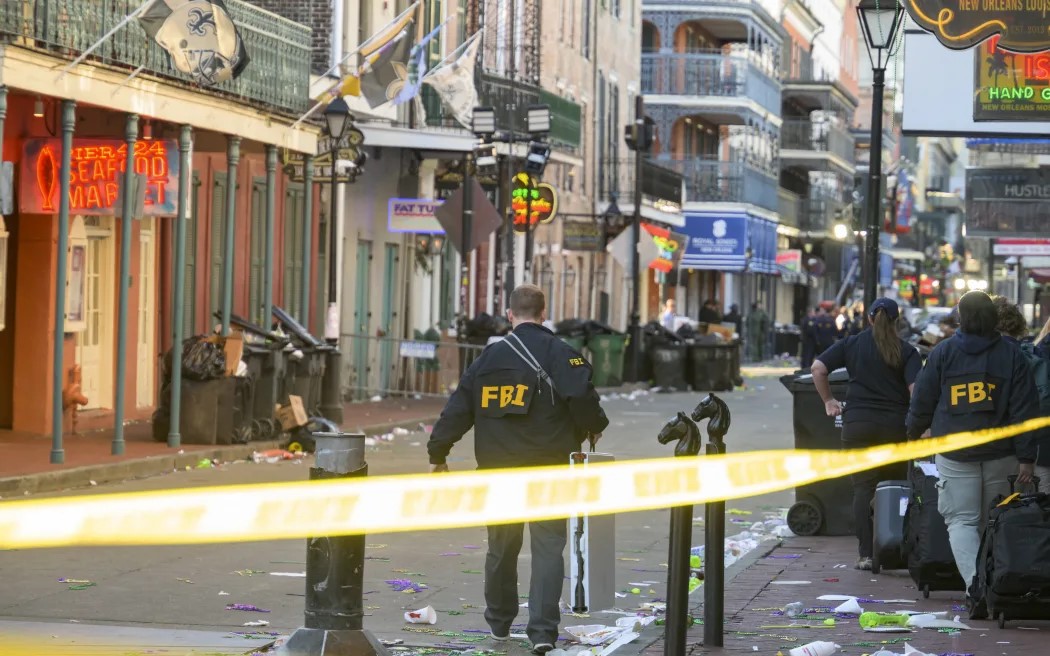The New Year’s Eve attack in New Orleans, where a terrorist drove with an ISIS flag, should serve as a chilling reminder that America remains vulnerable to extremist violence. This incident evokes a grim historical pattern, stretching from the World Trade Center bombing in 1993 to the devastating attacks of September 11, 2001. Each attack serves as a tragic marker on the timeline of terror, underscoring how complacency can invite catastrophe.
The 1993 World Trade Center bombing killed six people and injured over a thousand, signaling the rise of a determined and organized threat. This warning went largely unheeded, and the global stage saw further acts of terror, such as the coordinated bombings of U.S. embassies in Kenya and Tanzania in 1998, which killed 224 people, and the attack on the USS Cole in 2000, claiming the lives of 17 American sailors. These events culminated in the atrocities of 9/11—an attack on American soil that claimed nearly 3,000 lives and forever altered the nation’s trajectory.
On that dark day, terrorists struck at the heart of America’s symbols of strength and freedom. They brought down the Twin Towers, tore a gaping hole in the Pentagon, and targeted Washington, D.C., with United Airlines Flight 93, which crashed in Shanksville, Pennsylvania, after brave passengers heroically fought back. These were acts designed to destroy not just lives but also the spirit of a nation. And yet, the nation rallied. America vowed to “Never Forget” and embarked on the Global War on Terror, a conflict that claimed thousands of American lives and hundreds of thousands more around the world.
However, as time has passed, the vigilance that marked the immediate aftermath of 9/11 has waned. The New Year’s Eve attack in New Orleans raises critical questions about whether the conditions are once again ripening for a major assault. According to reports, the suspect displayed an ISIS flag during the attack, a blatant symbol of allegiance to a group that has repeatedly targeted the United States and its allies. The timing and location of the attack are particularly concerning given the upcoming 2025 NFL Super Bowl in New Orleans. Was this a test run for something larger? It is a question that demands attention and action.
Complacency is the enemy of security. The patterns of history show that when we let our guard down, we pay a heavy price. The 9/11 Commission Report emphasized that the attacks were a result of a “failure of imagination”—a failure to foresee how determined adversaries could exploit vulnerabilities. The New Orleans incident could be a stark warning that history is on the verge of repeating itself.
The call to action now is to shift from “Never Forget” to “We Remember.” We must remember the lessons of the past and act decisively to prevent future tragedies. This includes strengthening intelligence capabilities, enhancing domestic security measures, and fostering a unified national resolve to confront emerging threats. “We Remember” must be more than words; it must be a pledge to remain vigilant and proactive.
America’s heroes—from the first responders of 9/11 to the passengers of Flight 93, to the brave service members who have been deployed in harm’s way ever since combatting the global war on terror and protecting our national security interests—have shown us the power of courage and determination. It is our responsibility to honor their legacy by ensuring that their sacrifices were not in vain. The New Year’s Eve attack is a wake-up call. It’s time for America to say “We Remember” and act accordingly to safeguard the future.

